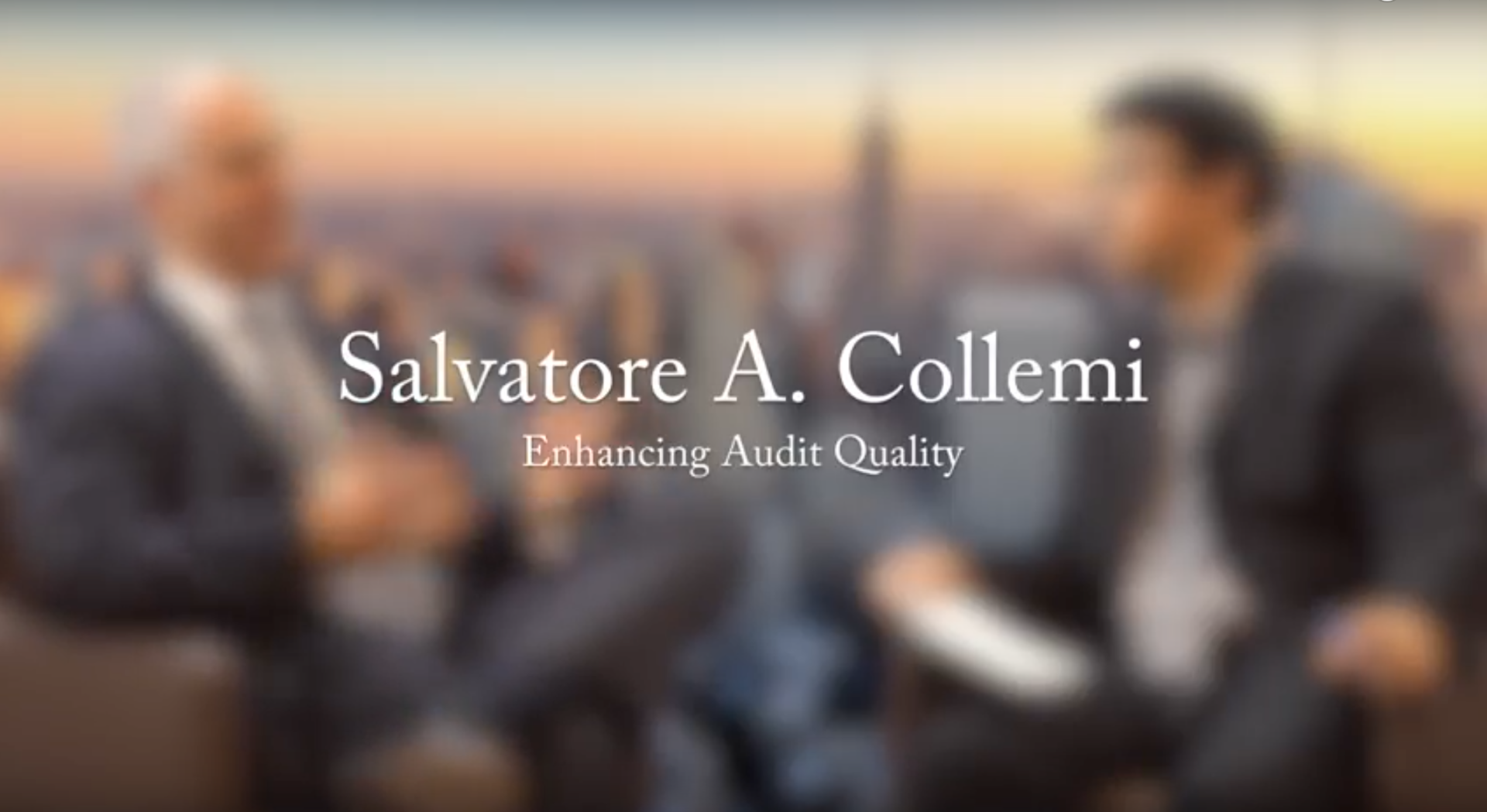La tua azienda è a rischio?
Scoprilo con una revisione gratuita della valutazione del rischio
Benvenuto in Collemi Consulting
& Servizi di consulenza
Collemi Consulting & Advisory Services, LLC si impegna a promuovere e migliorare la qualità dell'audit presso società di contabilità pubblica statunitensi e internazionali, settore privato, avvocati di contenzioso, esperti di valutazione, normatori, autorità di regolamentazione e altre organizzazioni che influenzano la professione di contabilità pubblica.
Chi siamo
Membro amministratore e fondatore Salvatore A. Collemi, CPA è stato un ex regolatore, standard-setter, revisore esterno e partner tecnico presso importanti istituzioni come la SEC, l'AICPA e diverse società internazionali di contabilità pubblica. Ha una profonda comprensione della mentalità di entrambi
regolatori e normatori.
CON COLLEMI CONSULTING HAI UN PARTNER AFFIDABILE ED ECONOMICO
I nostri servizi
La vasta esperienza del Sig. Collemi nella professione di contabile pubblico è la chiave per fornire una guida strategica e tecnica di alto livello ai nostri clienti quando conta di più – se mantenere i loro migliori clienti, cercare di vendere o acquistare una società CPA, rispettare gli standard -setter e regolatori. Con una vasta esperienza nel settore e una solida rete di contatti, forniamo una gamma completa di servizi tecnici, dalle consulenze contabili e di revisione internazionali e statunitensi alla revisione tra pari AICPA e alla preparazione delle ispezioni PCAOB fino alla formazione professionale continua (CPE) personalizzata. Collemi Consulting è anche ampiamente conosciuta come una fonte "go-to" per soluzioni di emergenza, comprese azioni legali e Peer Review AICPA sfavorevoli e Ispezioni PCAOB.
Competenza nell'audit
Competenza tecnica quando ne hai più bisogno
Analisi dei dati
Uno strumento per potenziare la business intelligence
Blog della conoscenza



Sei pronto a migliorare la qualità della tua pratica.
Contatta Salvatore A. Collemi, CPA al più presto per una consulenza iniziale gratuita di un'ora. Con la vasta esperienza del Sig. Collemi nella professione di contabilità pubblica, comprende l'impatto della rendicontazione finanziaria statunitense e internazionale, dei sistemi di controllo interno e dell'acume di conformità normativa in quanto influenzano sia le società private che quelle quotate in borsa. Inoltre, i suoi diversi ruoli dirigenziali di alto livello forniranno preziose informazioni su un'ampia gamma di considerazioni di conformità strategica, finanziaria, normativa e di business globale.







